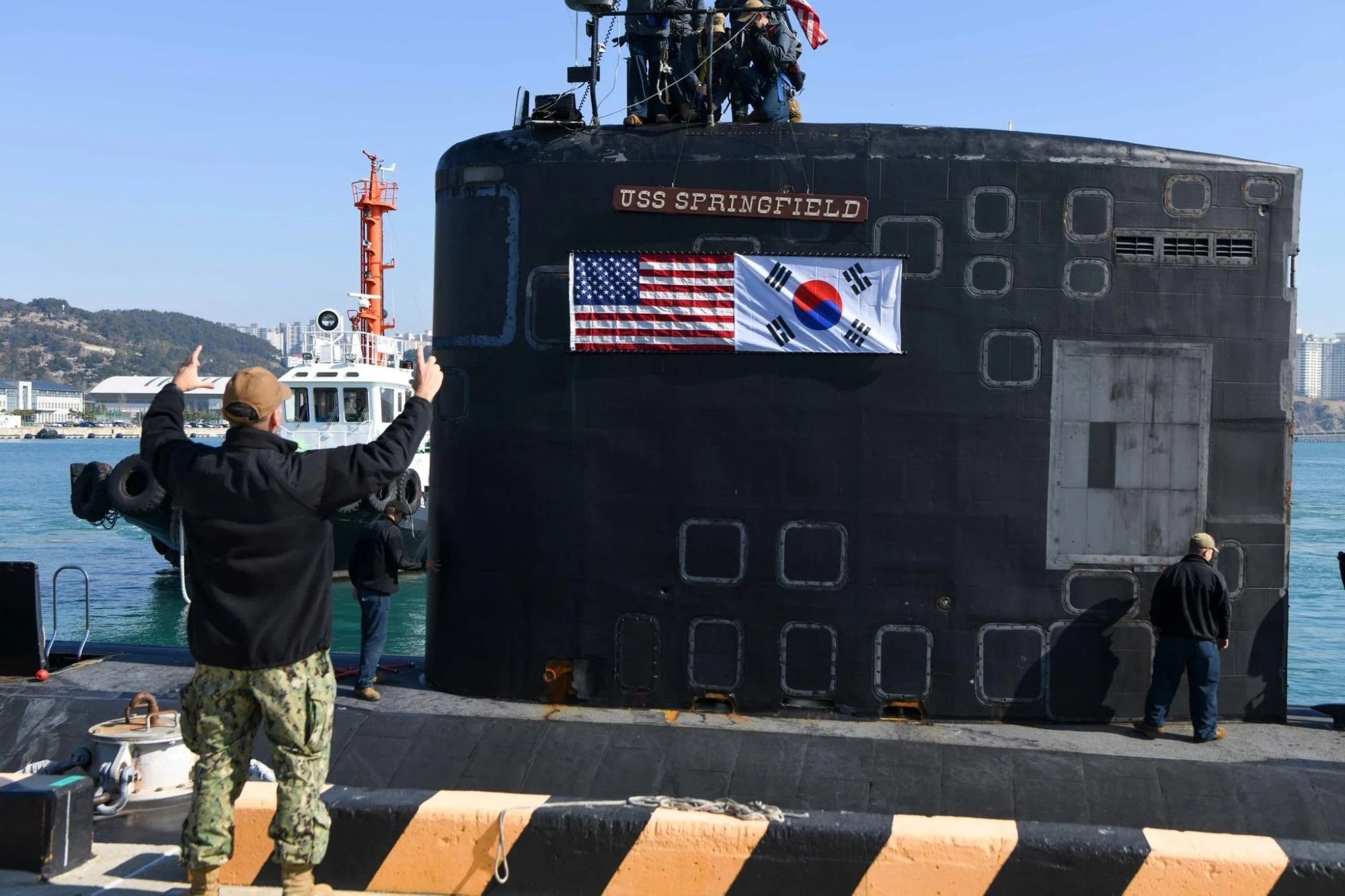US nuclear ballistic missile sub arrives in S. Korea, first since 1980
White House Indo-Pacific coordinator Kurt Campbell says that the submarine's visit is a demonstration of the US' commitment to South Korea's defense against the DPRK.
-

The Los Angeles-class fast-attack submarine USS Springfield in Busan, South Korea in February 2023. (US Pacific Fleet)
A senior US official confirmed on Tuesday that a US nuclear-armed ballistic missile submarine (SSBN) is in South Korea, marking the first time since the 1980s.
The news, confirmed by White House Indo-Pacific coordinator Kurt Campbell, has been expected ever since the visit was announced during a summit between South Korean President Yoon Suk Yeol and US President Joe Biden back in April.
At a press briefing in Seoul, Campbell told reporters: "As we speak, an American nuclear submarine is making port in Busan today, that's the first visit of an American nuclear submarine in decades". The official was in attendance at the first Nuclear Consultative Group (NCG) discussion with South Korean officials.
With the objective of coordinating an allied nuclear response in case of a war with the DPRK, the NCG was announced during the April summit as calls were increasing in South Korea to make its own nuclear weapons - something the US opposes.
Campbell added the submarine's visit is a demonstration of the US' commitment to South Korea's defense.
Read next: About 40% of US attack submarines are in repair, double Navy estimates
South Korea's Principal Deputy National Security Advisor Kim Tae-hyo, co-chairing the meeting with Campbell, claimed that the discussions are sufficient to make sure that South Korea does not need to develop its own nuclear weapons.
An 'overwhelming' allied response
Kim noted that both nations agreed to facilitate information sharing, coordination, and planning in the event of a nuclear attack by the DPRK, which would be confronted with an "overwhelming" allied response.
The South Korean President described the NCG as a "starting point" to build a strong and effective alliance against the DPRK.
"Through a South Korea-U.S. alliance upgraded to a new nuclear-based paradigm, we will make substantial efforts to fundamentally block North Korea's nuclear and missile threats," Yoon said during a briefing.
This comes after Member of the State Affairs Commission of the DPRK Kim Yo Jong, said on Friday that unless the US ceases to carry out its "hostile policy" against the DPRK, Pyongyang will unleash "overwhelming nuclear deterrence."
The DPRK fired its latest intercontinental ballistic missile (ICBM) launch as an act of self-defense on Wednesday after the US violated the country's airspace several times over the week.
On July 10, the DPRK accused the United States of repeatedly violating its Exclusive Economic Zone (EEZ) with a military spy plane. The deputy head of the Central Committee of the Workers' Party of Korea, Kim Yo Jong, stated that the US plane entered the DPRK's EEZ eight times in a single day.
The intrusions reportedly occurred off the east coast of the Korean Peninsula, specifically near Thongchon in Kangwon Province and Uljin in North Gyeongsang Province. Kim Yo Jong stated that the DPRK would not respond directly to US reconnaissance activities outside its EEZ but warned of "decisive action" if the US military crosses its maritime military demarcation line.
The US has been resorting to provocative measures such as holding joint drills last month with South Korea in the Seungjin Fire Training Field in the South Korean city of Pocheon, located only 30 kilometers from the military demarcation line.
The drills in question were meant to simulate an invasion of the DPRK.
The DPRK issued a "strong warning", calling the drills "provocative and irresponsible" and warning that these actions will lead to an escalation in the region.
Read next: Korean peninsula at the brink of nuclear war due to US actions: DPRK

 4 Min Read
4 Min Read








